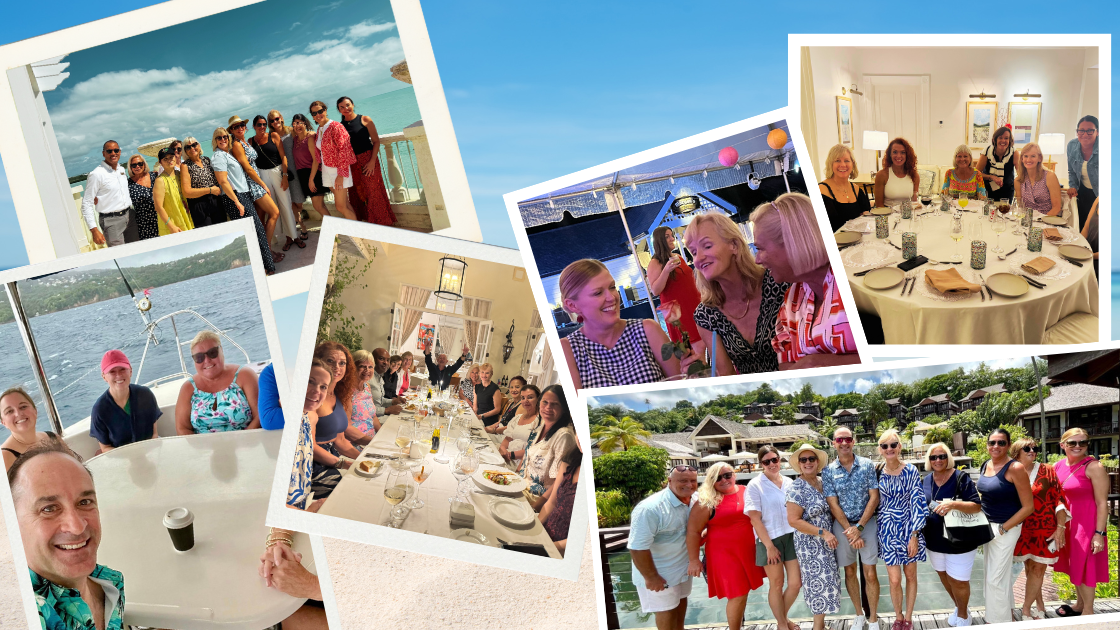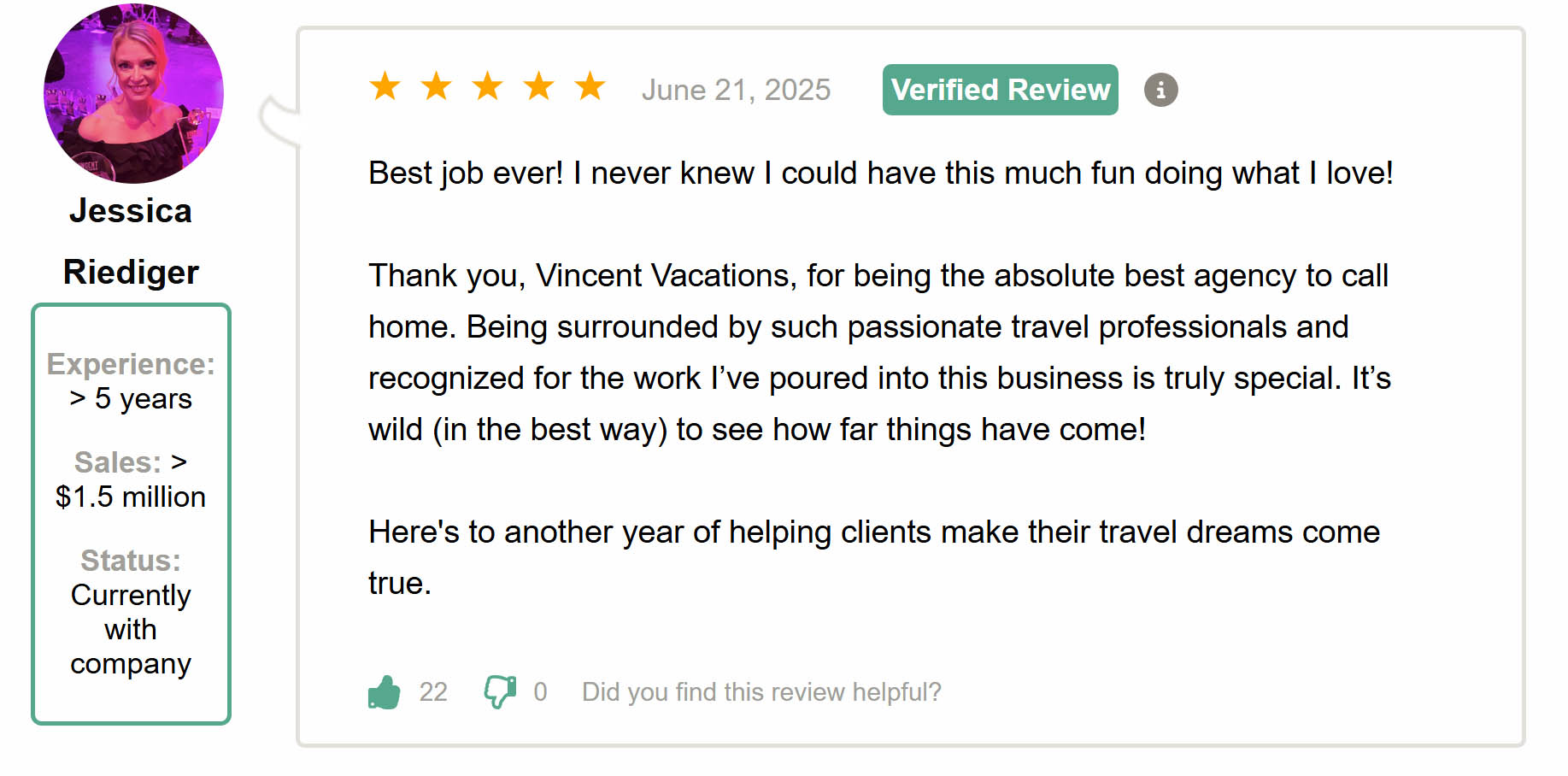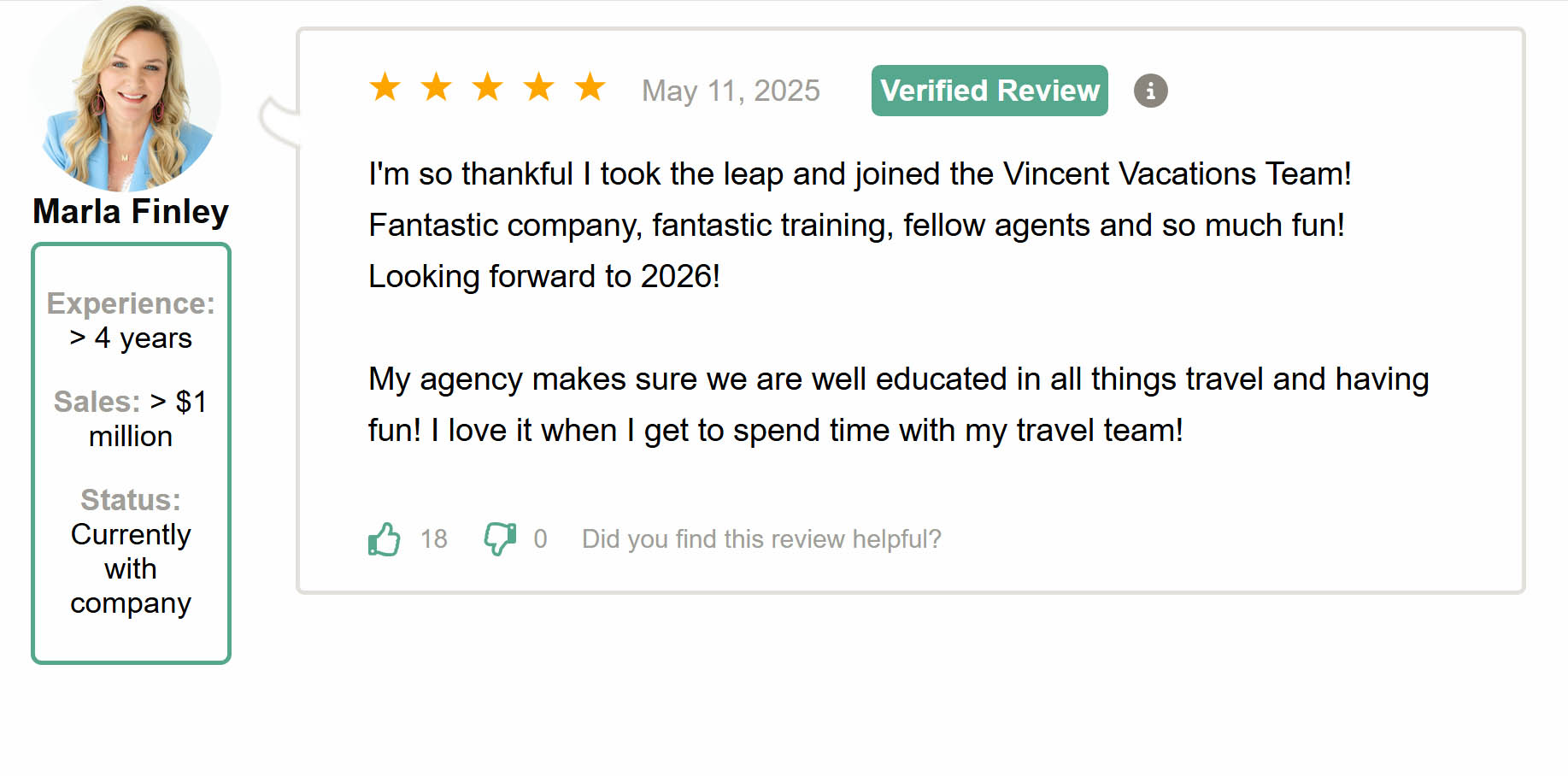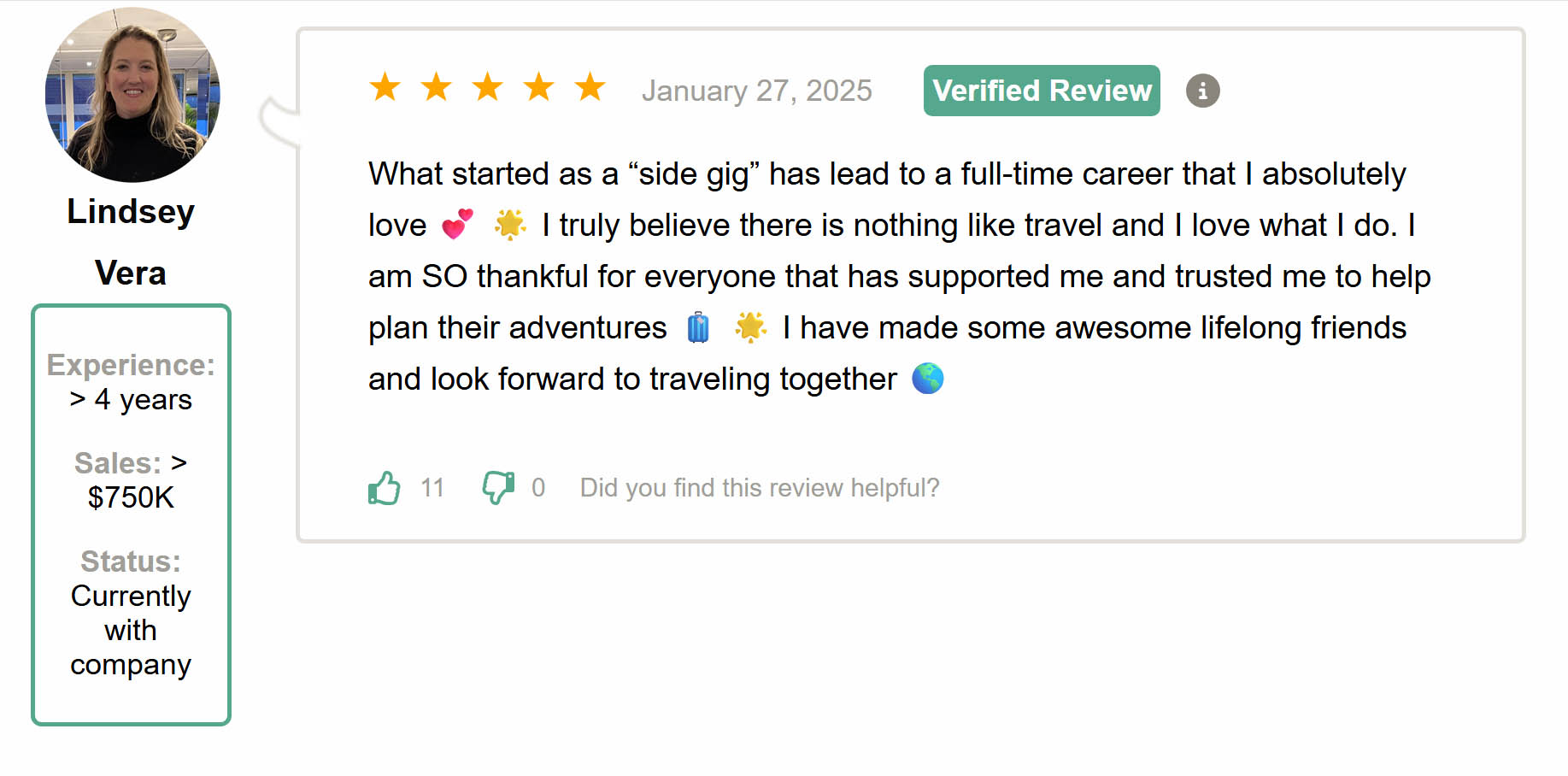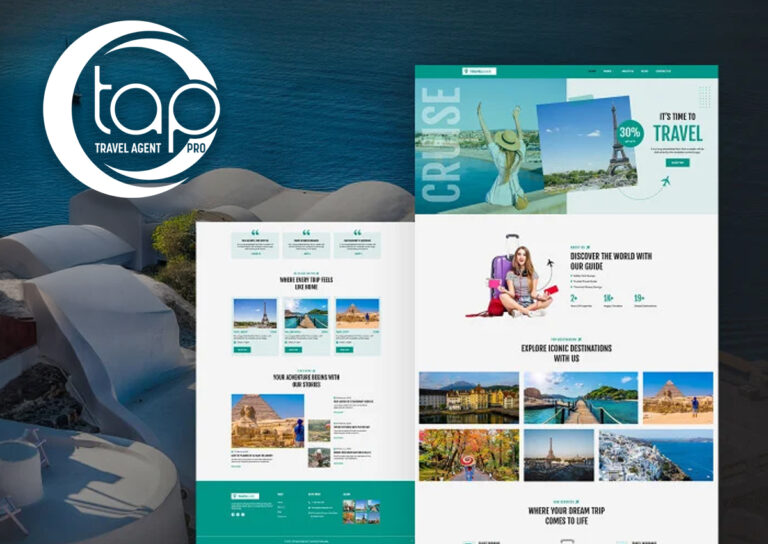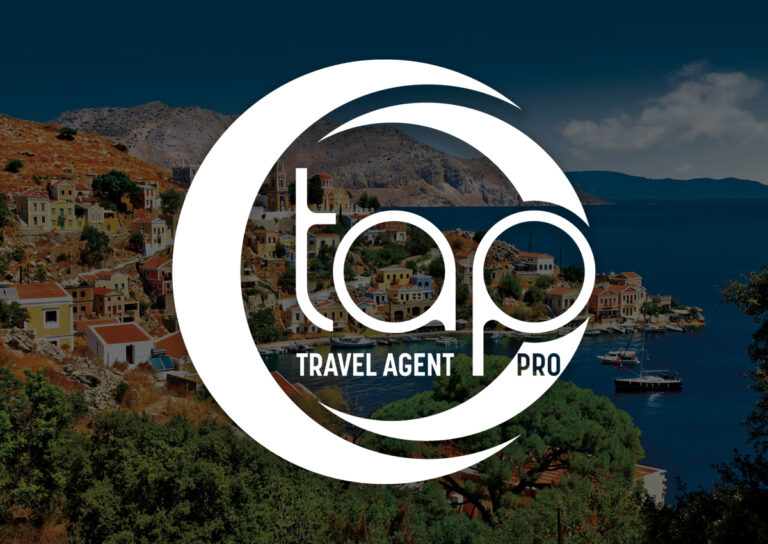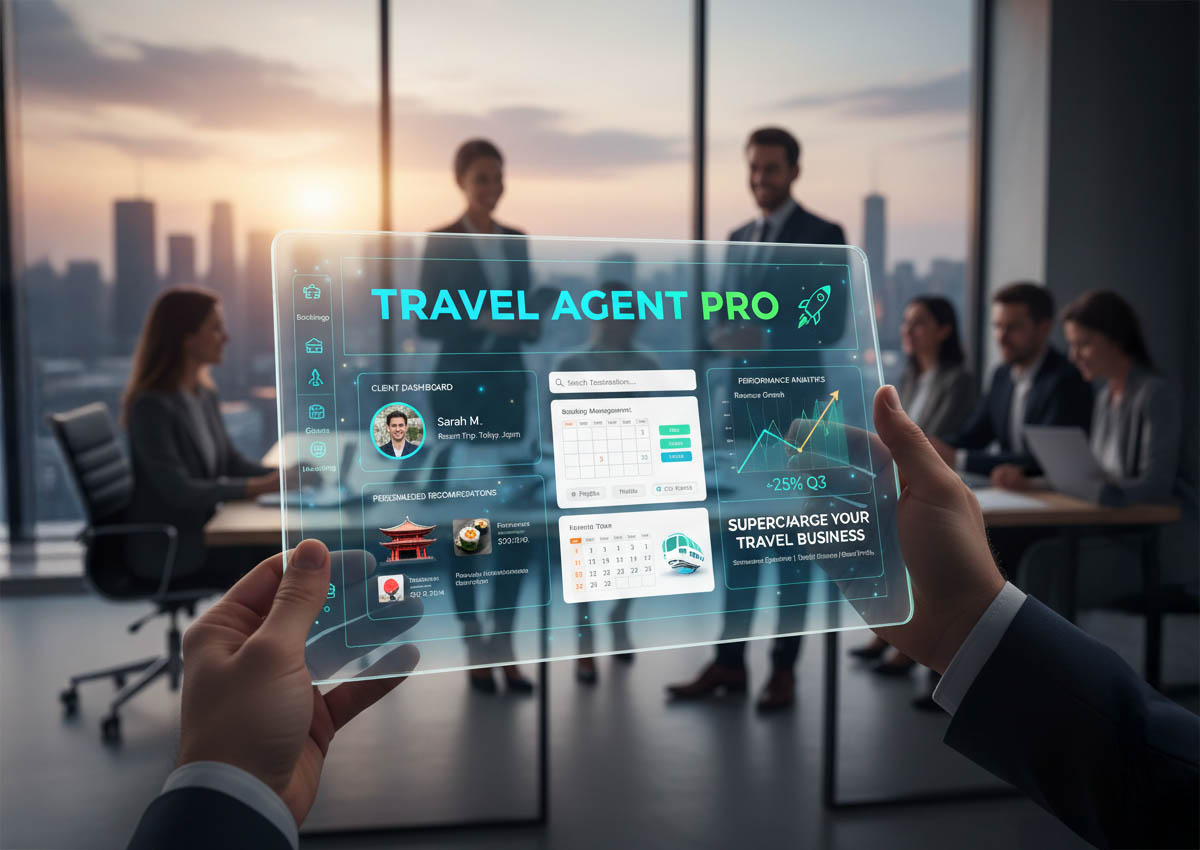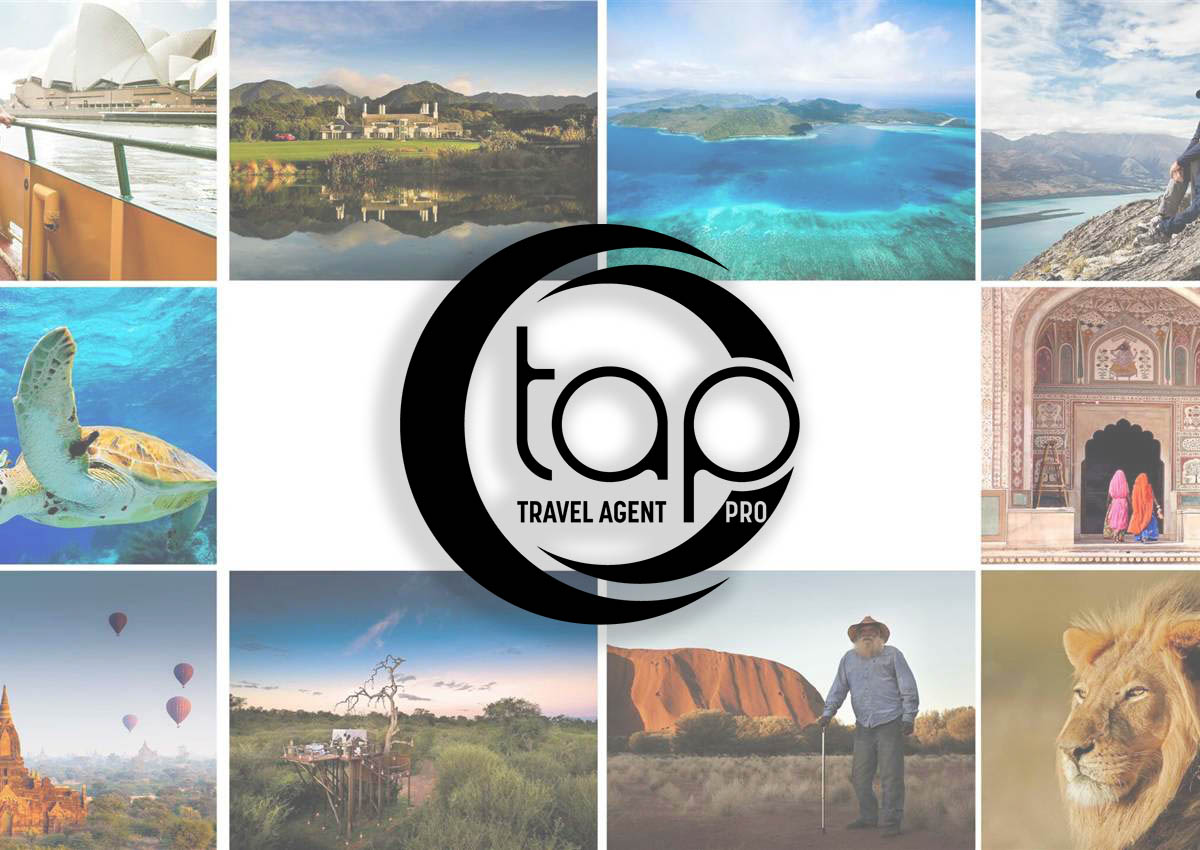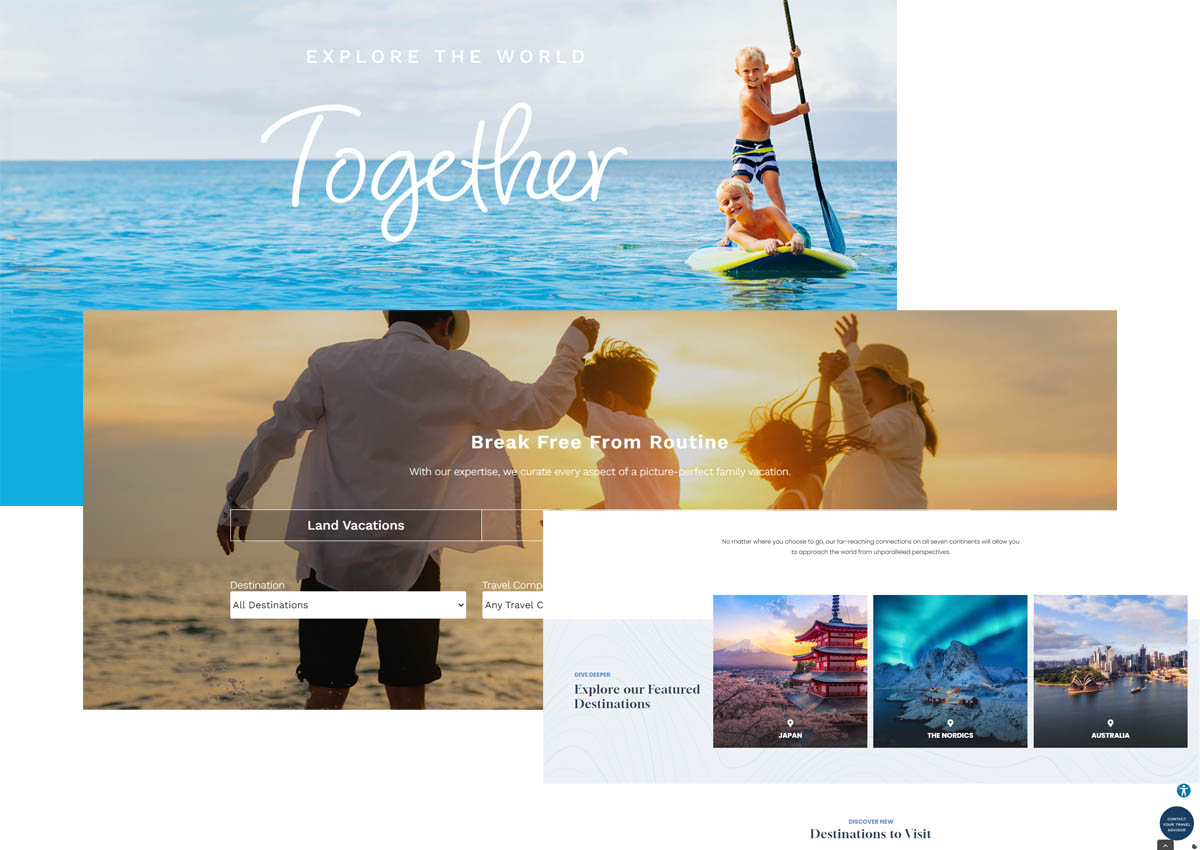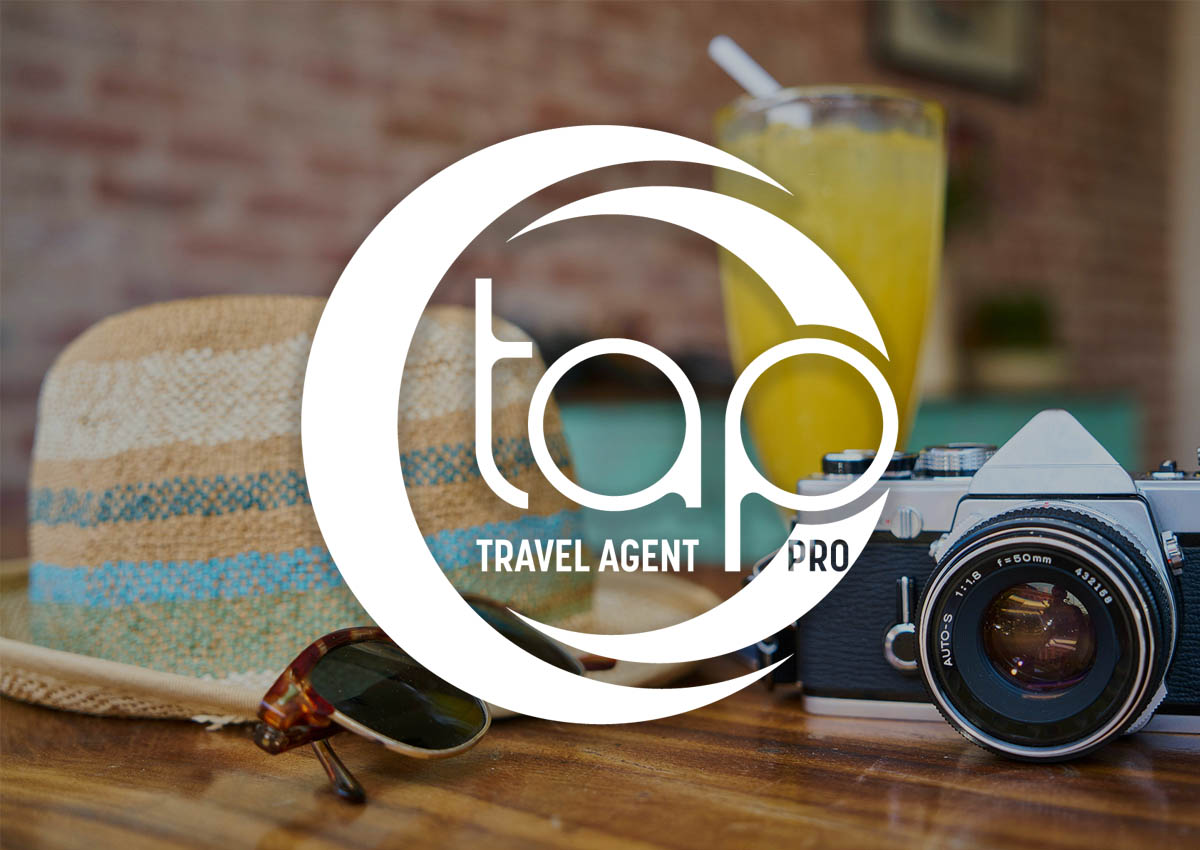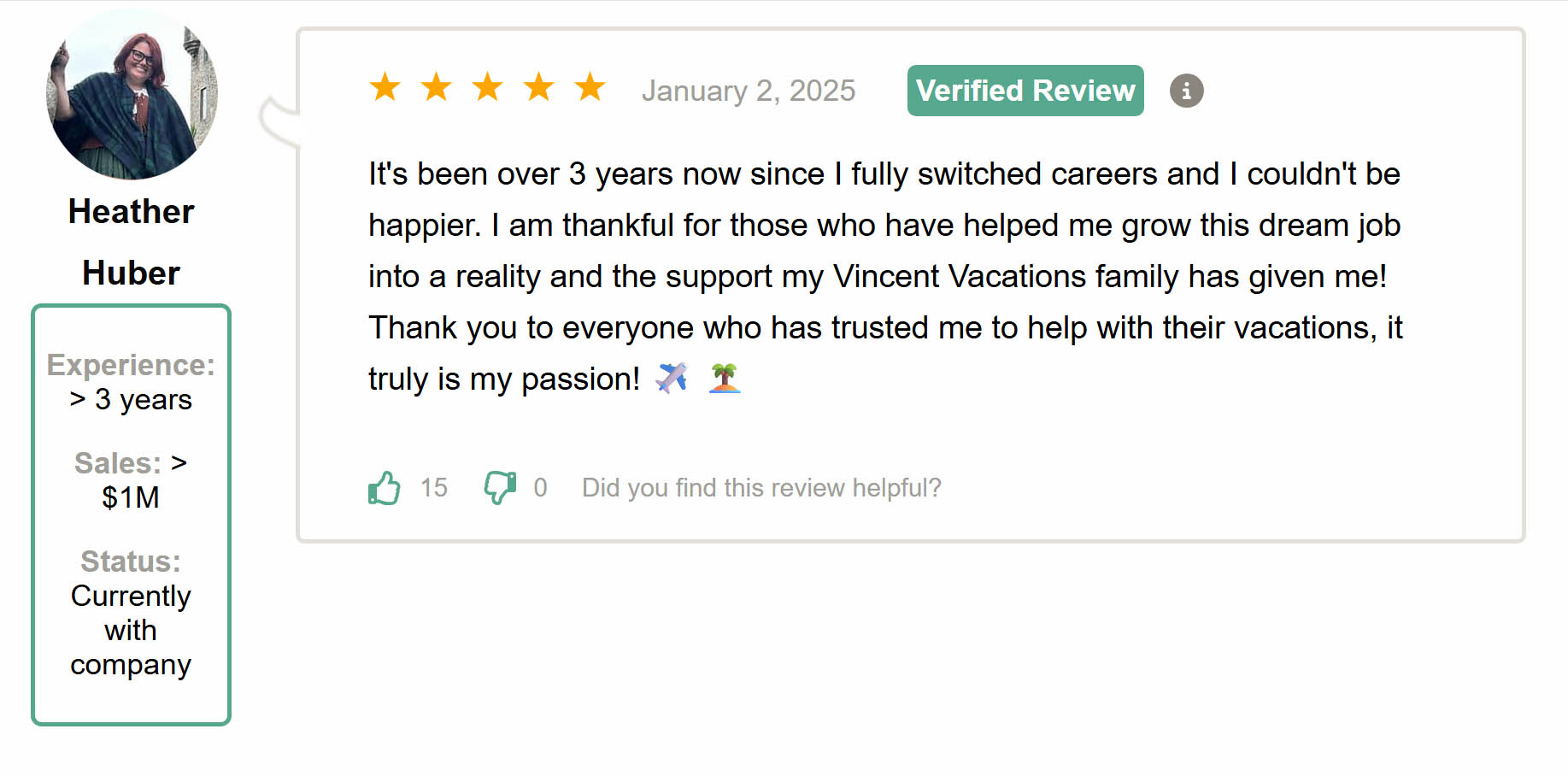Category :
Client Relations & SalesHow to Effectively Qualify Clients and Understand Their Travel Needs
To learn more techniques and how to create and grow your own travel business, sign-up to become a member today!

As an experienced travel agent, qualifying clients and understanding their travel needs is a crucial skill that sets you apart from automated travel booking systems and ensures client satisfaction. This process goes beyond merely asking where your clients want to go; it involves a deep dive into their preferences, goals, and expectations to provide a personalized and meaningful travel experience.
Why Qualifying Clients is Crucial
Qualifying clients is not just about determining whether a lead is worth your time; it's about building trust, understanding client needs, and delivering a tailored travel experience. Clients seek professional insight, personal service, and meaningful suggestions that only a dedicated travel agent can provide. By effectively qualifying clients, you can manage your time and resources more efficiently, focus on high-potential leads, and build long-term client relationships.
Learning to Ask the Right Questions
The questions you ask are pivotal in understanding your clients' needs and aspirations. Here are some key questions to include in your qualifying process:
What is the purpose of the trip?
- What are your clients looking for in this trip? What must-do elements are there?
- What are their hobbies and interests? Do they have a passion for adventurous sports?
- What is their dream vacation if budget were not an issue?
- How do they prefer to travel? What were their favorite trips in the past and why did they stand out?
These questions help you understand not just the current trip but also their broader travel aspirations and preferences.
By combining these strategies, you can effectively qualify clients, understand their travel needs, and deliver exceptional travel experiences that foster long-term client relationships and referrals.

Understanding the Importance of Client Qualification
Why Qualifying Clients is Crucial for Travel Agents
Qualifying clients is a fundamental skill for travel agents, extending far beyond the simple act of booking a trip. It involves understanding the client's needs, preferences, and expectations to provide a personalized and meaningful travel experience. Clients seek more than just transactional services; they look for professional insight, personal service, and meaningful suggestions that only a dedicated travel agent can offer. By effectively qualifying clients, you can build trust, foster long-term relationships, and ensure client satisfaction.
Time Management and Resource Optimization
Qualifying clients is also essential for effective time management and resource optimization. By determining whether a lead is a good fit for your services, you avoid wasting time on clients who may not be serious or compatible with your expertise. This process helps you focus on high-potential leads, allowing you to allocate your resources more efficiently. For instance, asking the right questions early on can help you identify if the client's budget, travel preferences, and expectations align with what you can offer, saving both you and the client valuable time.
Building Trust and Client Satisfaction
Building trust is a critical aspect of client qualification. When you take the time to understand your clients' unique needs and preferences, you demonstrate a commitment to their satisfaction. Active listening, asking the right questions, and showing empathy all contribute to creating a positive and trusting relationship. By understanding what your clients are looking for in their travel experience, you can tailor your recommendations and services to meet their expectations, leading to higher client satisfaction and loyalty.
When clients feel heard and understood, they are more likely to trust your recommendations and feel valued, which is essential for delivering exceptional travel experiences.
This trust not only enhances the current trip but also fosters long-term client relationships, encouraging repeat business and recommendations. By prioritizing client qualification, you can ensure that each interaction with your clients is meaningful and productive, ultimately leading to greater client satisfaction and a stronger reputation for your travel business.

Learning to Ask the Right Questions
Determining the Purpose of the Trip
To effectively qualify clients, it's essential to start by understanding the purpose of their trip. This is more than just asking where they want to go; it involves delving into the reasons behind their travel plans. Questions like "What is the purpose of this trip?" or "What are you hoping to achieve or experience during this vacation?" can provide valuable insights. For instance, are they celebrating a special occasion, seeking relaxation, or looking for an adventure? Understanding the purpose helps you tailor your recommendations and services to meet their specific needs and expectations.
Understanding Client Preferences and Travel History
Understanding your clients' preferences and travel history is crucial for providing personalized services. Ask questions such as "How do you prefer to travel?" or "What were your favorite trips in the past and why did they stand out?". This helps you identify patterns and preferences, such as their preferred mode of transportation, accommodation types, and activities they enjoy. By knowing what has worked well for them in the past, you can suggest similar experiences that are likely to satisfy their current travel aspirations.
For example, if a client mentions they loved a previous trip to a beach resort, you can suggest other beach destinations or resorts that offer similar amenities and experiences.
Identifying Must-Do Elements of the Trip
Identifying the must-do elements of the trip is vital for ensuring that your clients' key expectations are met. Ask "What are the must-do activities or experiences for this trip?" or "Are there any specific attractions or landmarks they want to visit?". This information allows you to prioritize their needs and ensure that these critical elements are included in the travel plan. It also helps you to manage their expectations and avoid any potential disappointments.
Example of Must-Do Elements
If a client is traveling to Paris, their must-do elements might include visiting the Eiffel Tower, exploring the Louvre Museum, or enjoying a Seine River cruise.
Exploring Client Hobbies and Interests
Exploring your clients' hobbies and interests can help you suggest activities and destinations that align with their passions. Questions like "What are your hobbies or interests?" or "Do you have a passion for adventurous sports or cultural experiences?" can reveal valuable information. For instance, if a client is an avid hiker, you might recommend destinations with notable hiking trails or outdoor activities. This personal touch enhances their travel experience and makes it more meaningful.
Discussing Dream Vacations and Budget Considerations
Discussing dream vacations and budget considerations is another important aspect of qualifying clients. Ask "What would be your dream vacation if budget were not an issue?" to understand their aspirations and what they truly desire. Additionally, questions about their budget, such as "What is your budget for this trip?" or "Are there any specific budget constraints or preferences?", help you provide realistic and affordable options. This balance between dreams and budget ensures that you can offer them a travel experience that is both fulfilling and financially viable.
Your Host Travel Agency
Launched by industry veterans, Vincent Vacations is working to carve out a niche as a boutique, community-driven option designed by advisors, for advisors.
Learn More
The Role of Active Listening in Client Qualification
Paying Attention to Details and Non-Verbal Cues
Active listening begins with paying attention to both the verbal and non-verbal cues from your clients. This involves more than just hearing what they say; it requires observing their preferred method of communication, their tone, and any signs of stress or distraction. For instance, if your first interaction is over the phone, in person, or via email, note that this is likely their preferred method of communication. Be patient and avoid pushing a sale too aggressively if they seem stressed or distracted. These initial interactions provide valuable insights into how they plan, receive information, and respond to feedback.
For example, maintaining an open stance with uncrossed arms and a relaxed posture during in-person meetings shows that you have their full attention. Nod occasionally to indicate understanding and agreement, and ensure your facial expressions reflect the emotions of the client.
Showing You Are Listening Through Verbal and Non-Verbal Feedback
Showcasing that you are actively listening is crucial for building trust and rapport with your clients. This can be achieved through both verbal and non-verbal feedback. Maintaining eye contact during in-person and virtual meetings is essential. Use verbal acknowledgments such as "I see," "I understand," or "That must have been challenging" to communicate that you are engaged in the conversation. Additionally, ask clarifying questions to ensure you accurately understand their concerns. For instance, saying "So you’re saying the room temperature was too low?" helps clarify and confirm the client’s issue.
Verbal acknowledgments are powerful tools in active listening. They not only show that you are listening but also help in confirming the client’s concerns. Phrases like "I understand how that must have felt" or "That sounds very frustrating" can go a long way in building empathy and trust.Verbal Acknowledgments
Adapting to Client Communication Preferences
Adapting to your clients’ communication preferences is a key aspect of active listening. Different clients prefer different methods of communication, and being flexible can significantly enhance the client-agent relationship. If a client prefers emails, ensure you are prompt and detailed in your responses. For those who prefer phone calls, be available and attentive during the conversation. By aligning your communication style with the client’s preferences, you can build a stronger connection and ensure smoother communication.
Managing Client Stress and Expectations
Managing client stress and expectations is another critical component of active listening. When clients share their concerns or frustrations, it is essential to acknowledge their feelings and respond with empathy. Showing understanding through verbal and non-verbal cues can help alleviate their stress and build trust. For example, if a client is anxious about their travel plans, a reassuring response like "I understand your concerns, and I'm here to help you every step of the way" can make a significant difference in their perception of your service.
By actively listening and addressing client concerns promptly, you can create a positive and trusting relationship, which is vital for delivering exceptional travel experiences.
Become a Travel Agent: Unleash Your Full Potential
Ready for a career that's as fulfilling as it is rewarding? Becoming a travel agent with Vincent Vacations means building a business around your passion for travel.

Assessing Client Fit and Setting Boundaries
Identifying Your Ideal Client Type
Identifying your ideal client type is a crucial step in effectively qualifying clients. This involves understanding your niche within the travel industry and the types of travel services you excel at. For instance, if your passion is booking destination weddings, honeymoons, or babymoons in Jamaica, it's important to recognize that a client looking for a family trip to Ireland might not be the best fit for your services.
Evaluating Client Goals and Expectations
Evaluating client goals and expectations is essential for determining whether you are a good fit for each other. Ask questions like "What are your goals for this trip?" or "What are you hoping to achieve or experience during this vacation?" to understand their aspirations. This helps you gauge their interest level and ensure that their expectations align with what you can offer. For example, if a client is looking for a DIY travel experience but you specialize in high-end, white-glove services, it's important to recognize this mismatch early on.
If a client mentions they want to explore cultural sites but you specialize in beach vacations, you can politely explain that another agent might be a better fit for their needs.Example of Evaluating Client Goals
Knowing When to Say No to a Lead
Knowing when to say no to a lead is a critical aspect of client qualification. It's important to recognize that not every lead is worth your time and effort. If a client's needs do not align with your services or if they are not invested in the type of travel you specialize in, it's better to acknowledge this early on. Saying no to a lead that is not a good fit saves both you and the client time and avoids potential frustration later in the process.
If a client is asking for services that you do not provide, you can say, "I feel like another agent might be a better fit for you. They specialize in the kind of travel you're looking for."
Communicating Your Value Proposition
Communicating your value proposition clearly is vital for attracting and retaining the right clients. Explain what sets you apart from other travel agents and what unique services you offer. Highlight your expertise, the quality of your recommendations, and any special perks or benefits that come with working with you. This helps clients understand why they should choose you over other travel agents and builds trust in your services.
| Service | Unique Value |
|---|---|
| Personalized Itineraries | Customized travel plans tailored to individual preferences and goals. |
| Expert Knowledge | In-depth knowledge of destinations and activities to ensure a memorable experience. |
| Client Support | 24/7 support to address any concerns or issues that may arise during the trip. |
Your Host Travel Agency
Launched by industry veterans, Vincent Vacations is working to carve out a niche as a boutique, community-driven option designed by advisors, for advisors.
Learn More
Advanced Qualification Techniques
Asking Meaningful and Relevant Questions
To take your client qualification to the next level, it's crucial to ask meaningful and relevant questions. These questions should delve deeper into the client's needs, preferences, and aspirations. For example, you might ask "What inspired you to plan this trip?" or "What are the most important aspects of your travel experience?". These questions help you understand the client's motivations and priorities, allowing you to provide more personalized and relevant recommendations.
Questions like "What did you enjoy most about your last trip?" or "Are there any specific activities or experiences you're looking to have on this trip?" can provide valuable insights into the client's preferences and expectations.Example of Meaningful Questions
Exploring Client Goals and Inspiration for the Trip
Understanding the client's goals and what inspires their trip is essential for advanced qualification. Ask questions that help you grasp the emotional and practical reasons behind their travel plans. For instance, "What are you hoping to achieve or experience during this vacation?" or "Is there something specific that drew you to this destination?". This helps you connect with the client on a deeper level and tailor your services to meet their unique goals and inspirations.
By understanding the client's goals, you can align your recommendations with their aspirations, making the travel experience more meaningful and fulfilling.
Discussing Budget, Time, and Destination Preferences
Detailed discussions about budget, time, and destination preferences are vital for ensuring that the client's needs are met. Ask specific questions such as "What is your budget for this trip?", "When are you available to travel?", and "What type of destination are you looking for?". These questions help you understand the client's constraints and preferences, allowing you to suggest options that fit within their budget and time frame.
| Preference | Client Input |
|---|---|
| Budget | $2,000 per person |
| Time | Available to travel in June or July |
| Destination | Looking for a beach destination in the Caribbean |
Highlighting Unique Selling Points and Competitive Advantages
Highlighting your unique selling points and competitive advantages is crucial for differentiating yourself from other travel agents. Clearly communicate what sets you apart, such as your expertise, the quality of your recommendations, and any special perks or benefits that come with working with you. For example, you might say, "With my extensive knowledge of destination weddings, I can provide you with personalized and tailored itineraries that make your special day unforgettable." This helps clients understand the value they receive by choosing your services over others.
By emphasizing your unique value proposition, you can build trust and confidence with your clients, making them more likely to choose your services.
Unique Selling Points:
- Personalized itineraries tailored to individual preferences
- Expert knowledge of destinations
- 24/7 client support
- Special perks and benefits exclusive to our clients

Using Survey Forms and Follow-Up Calls
Designing Effective Client Survey Forms
Designing effective client survey forms is a crucial step in gathering comprehensive information about your clients' needs and preferences. When creating these forms, it's important to include a mix of open-ended and multiple-choice questions. Open-ended questions, such as "What are your favorite travel destinations and why?" or "What did you enjoy most about your last trip?", allow clients to provide detailed insights into their travel preferences and experiences. Multiple-choice questions can help you quickly identify specific details like preferred travel dates, budget ranges, and types of accommodations.
For example, a question like "What type of vacation are you interested in? (Check all that apply)" with options such as "Beach," "City," "Nature," or "Cultural" can help you understand their broad interests.
Scheduling Follow-Up Calls to Gather More Information
Scheduling follow-up calls is an excellent way to gather more detailed and personalized information from your clients. These calls allow for real-time interaction and the opportunity to ask follow-up questions based on the client's responses. During these calls, actively listen to their concerns and preferences, and take notes to ensure you capture all the essential details. For instance, you might ask "Can you tell me more about your travel plans and what you're looking for in this trip?" or "How can I assist you further in making this trip special?". This personal touch helps build trust and ensures that you are well-equipped to meet their specific needs.
During the follow-up call, you could ask questions like "Have you traveled to this destination before?" or "Are there any specific activities or attractions you want to include in your itinerary?" to gather more nuanced information.Example of Follow-Up Call Questions
Analyzing Survey Data to Understand Client Needs
Once you have collected the survey data and follow-up call information, it's essential to analyze it thoroughly to understand your clients' needs. Look for patterns and trends in the responses to identify common preferences and concerns. This analysis helps you tailor your recommendations and services to better match what your clients are looking for. For example, if multiple clients express a preference for eco-friendly accommodations, you can prioritize suggesting such options in your travel plans. Use tables or charts to organize the data and make it easier to review and act upon.
| Client Preference | Number of Clients |
|---|---|
| Eco-friendly accommodations | 10 |
| Beach destinations | 8 |
| Cultural tours | 6 |
This detailed analysis ensures that you are not only meeting but exceeding your clients' expectations, leading to higher satisfaction rates and stronger client relationships.
For Both Aspiring and Experienced Travel Advisors
Build a travel business doing what you love - on your own terms. Start booking trips the day you join, with a best-in-class education curriculum developed by industry experts.

Conclusion: Mastering Client Qualification as a Travel Agent
Effectively qualifying clients and understanding their travel needs is the cornerstone of a successful travel business. By mastering this skill, you can build strong, trusting relationships with your clients, ensure their travel experiences are tailored to their preferences, and ultimately drive customer satisfaction and loyalty.
Active listening, as emphasized in the qualification process, is not just about hearing what clients say, but also about paying attention to details, showing you are engaged, and providing meaningful feedback. This approach helps in gathering comprehensive information and building a connection that goes beyond a mere transaction.
By actively listening and asking the right questions, you can uncover the client's true needs and aspirations, allowing you to offer personalized recommendations that align with their goals and expectations.
Asking the right questions is another critical aspect of client qualification. Questions about the purpose of the trip, client preferences, travel history, and must-do elements help you understand the client's unique needs. These questions also provide an opportunity to showcase your expertise and build trust by offering insightful and relevant suggestions.
Asking questions like "What are your goals for this trip?" or "What did you enjoy most about your last trip?" helps you delve deeper into the client's preferences and expectations.Example of Right Questions
Assessing client fit and setting boundaries is essential for efficient time management and resource optimization. Identifying your ideal client type and evaluating client goals and expectations help you determine whether a lead is worth your time. Knowing when to say no to a lead that is not a good fit saves both you and the client valuable time and avoids potential frustration.
Using survey forms and follow-up calls can further enhance your understanding of client needs. These tools allow you to gather detailed information and clarify any doubts, ensuring you have a comprehensive understanding of their preferences and expectations. Analyzing the data from these surveys helps in tailoring your recommendations and services to better meet client needs.
| Technique | Key Points |
|---|---|
| Active Listening | Paying attention to details, showing engagement, providing meaningful feedback |
| Asking the Right Questions | Understanding trip purpose, client preferences, travel history |
| Assessing Client Fit | Identifying ideal client type, evaluating goals and expectations |
| Using Survey Forms and Follow-Up Calls | Gathering detailed information, analyzing data for personalized recommendations |
Your Host Travel Agency
Launched by industry veterans, Vincent Vacations is working to carve out a niche as a boutique, community-driven option designed by advisors, for advisors.
Learn MoreBy integrating these techniques into your client qualification process, you can ensure that each interaction with your clients is meaningful, productive, and tailored to their unique needs. This approach not only enhances client satisfaction but also fosters long-term relationships and referrals, ultimately growing your travel business's reputation and success.
Remember, the key to effective client qualification is a combination of active listening, thoughtful questioning, and a clear understanding of your value proposition.
Learn more about this by signing up as a member, today! Vincent Vacations Application Form.
To learn more techniques and how to grow your travel business, read more on our Articles page.



